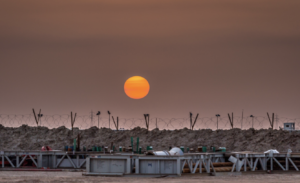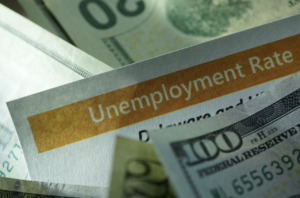Ads
In January, US retail sales were substantially lower than expected due to a variety of factors, including cold weather, inflation, and interest rates. The Commerce Department reported a 0.8% drop in retail sales, marking the end of a two-month increase. Gas stations saw a 1.7% drop in spending, while home improvement stores experienced a 4.1% decline, likely due to the cold weather. Online earnings also declined by 0.8%, while pub and restaurant revenues rose by 0.7%.
One of the key reasons for the decline in retail sales was the unusually cold weather that kept Americans indoors. This came after a strong Christmas shopping season, showing that consumer behavior can change rapidly due to external factors. While the job market remains robust and the stock market has seen growth, many Americans are feeling the pinch of high inflation and difficulty accessing credit, leading them to dip into their savings.
Despite a slight decrease in inflation last month, certain price hikes are still causing discomfort for consumers. The data released by the Commerce Department was worse than expected, but this is only the second decline in retail sales in the past 10 months. As the weather begins to normalize and people catch up on delayed spending plans, we may see a boost in retail spending in the coming months.
According to Comerica Bank chief economist Bill Adams, weak retail sales due to weather-related issues typically reverse quickly once the weather returns to normal, and people resume their spending patterns. He also suggests that the Federal Reserve may view the disappointing retail sales data as a temporary setback rather than a sign of deeper economic issues.
While there are no signs of a recession in the US, most economists anticipate a slowdown in the economy in the near future. Companies are reporting that American consumers are feeling stressed, leading to potential cuts in spending. The New York Federal Reserve reports that consumers are increasingly relying on credit cards and “Buy Now, Pay Later” programs to sustain their spending habits, particularly those with lower credit ratings.
Nationwide chief economist Kathy Bostjancic notes that consumers are likely to rein in their spending this year after dipping into pandemic-related savings and increasing their reliance on credit. This shift in consumer behavior is reflected in their willingness to trade down for better deals and borrow more to stretch their dollars further.
Coca-Cola CEO James Quincey highlighted the impact of inflation on consumer behavior, noting that affordability is a key concern for many households. As inflation remains above the Federal Reserve’s target of 2%, some consumers are opting for more affordable options and making purchases at stores like Costco and Walmart to make their money go further.
Overall, the decline in retail sales in January reflects a complex mix of factors, including weather-related issues, inflation, and consumer behavior. While the economy remains relatively strong, there are signs that consumers are feeling the strain of rising prices and tighter access to credit. As the year progresses, it will be important to monitor consumer spending habits and retail sales data to gauge the health of the US economy.






